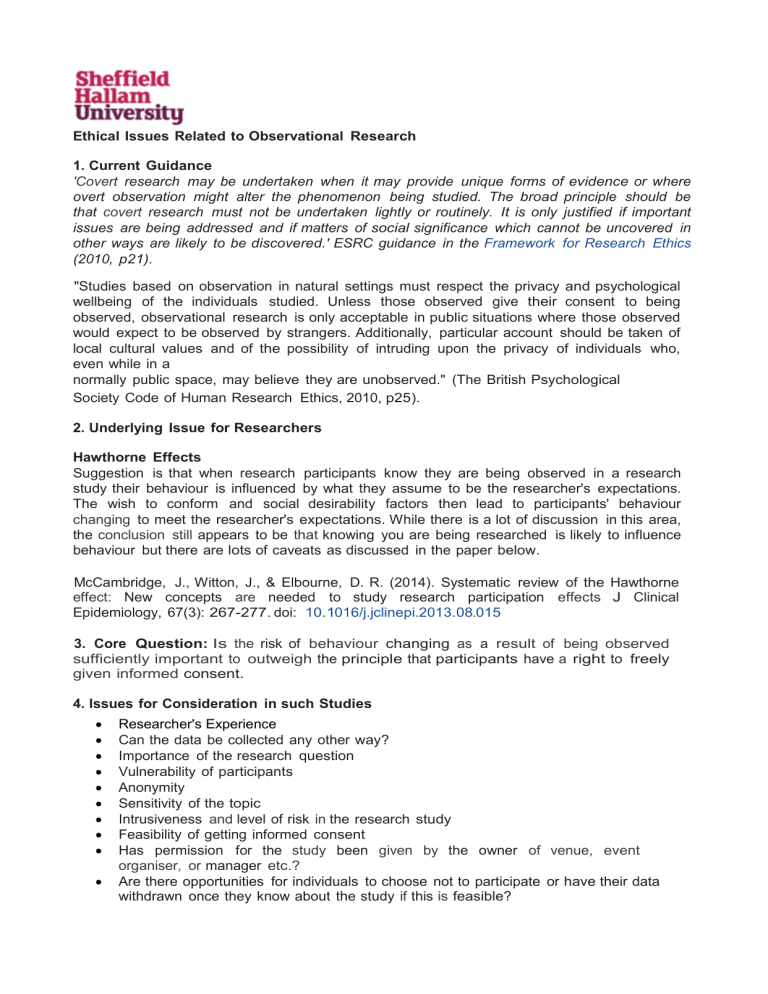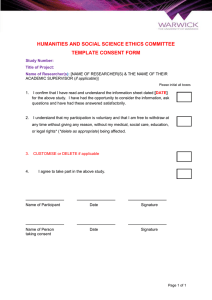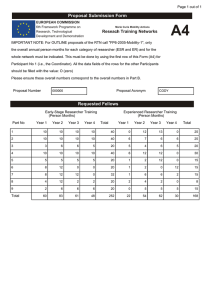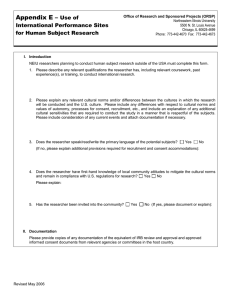
Ethical Issues Related to Observational Research 1. Current Guidance 'Covert research may be undertaken when it may provide unique forms of evidence or where overt observation might alter the phenomenon being studied. The broad principle should be that covert research must not be undertaken lightly or routinely. It is only justified if important issues are being addressed and if matters of social significance which cannot be uncovered in other ways are likely to be discovered.' ESRC guidance in the Framework for Research Ethics (2010, p21). "Studies based on observation in natural settings must respect the privacy and psychological wellbeing of the individuals studied. Unless those observed give their consent to being observed, observational research is only acceptable in public situations where those observed would expect to be observed by strangers. Additionally, particular account should be taken of local cultural values and of the possibility of intruding upon the privacy of individuals who, even while in a normally public space, may believe they are unobserved." (The British Psychological Society Code of Human Research Ethics, 2010, p25). 2. Underlying Issue for Researchers Hawthorne Effects Suggestion is that when research participants know they are being observed in a research study their behaviour is influenced by what they assume to be the researcher's expectations. The wish to conform and social desirability factors then lead to participants' behaviour changing to meet the researcher's expectations. While there is a lot of discussion in this area, the conclusion still appears to be that knowing you are being researched is likely to influence behaviour but there are lots of caveats as discussed in the paper below. McCambridge, J., Witton, J., & Elbourne, D. R. (2014). Systematic review of the Hawthorne effect: New concepts are needed to study research participation effects J Clinical Epidemiology, 67(3): 267-277. doi: 10.1016/j.jclinepi.2013.08.015 3. Core Question: Is the risk of behaviour changing as a result of being observed sufficiently important to outweigh the principle that participants have a right to freely given informed consent. 4. Issues for Consideration in such Studies Researcher's Experience Can the data be collected any other way? Importance of the research question Vulnerability of participants Anonymity Sensitivity of the topic Intrusiveness and level of risk in the research study Feasibility of getting informed consent Has permission for the study been given by the owner of venue, event organiser, or manager etc.? Are there opportunities for individuals to choose not to participate or have their data withdrawn once they know about the study if this is feasible? Participant Observation studies as above plus Plasticity of researcher/ observer roles if the research involves participant observation Opportunities and time for trust to develop between researcher and observed participants 5. Debriefing Needs to be discussed and feasibility assessed. Issues for Researchers Is there a procedure in place if something is observed that gives cause for concern? Safety of researcher during fieldwork. January 2016




